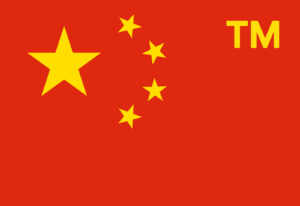China Working Hours and Overtime Issues
Navigating the complex landscape of China’s employment laws is a crucial task for foreign companies operating in China. Among the many challenges these businesses face, understanding and complying with China’s employment laws, especially those pertaining to working hours and overtime, are paramount.
Misconceptions about these regulations can and do lead to costly errors, strained employee relations, and potential legal issues. In this post, I aim to dispel some of the most common myths surrounding working hours and overtime in China. By clarifying these misconceptions, I hope to provide foreign employers with the knowledge they need to manage their workforce within the legal framework of China’s employment laws, avoiding common pitfalls and fostering a fair and productive work environment.
China Working Hour Myths
Working hours for China employees are usually determined under China’s “standard working hours system,” and in most places in China, that means a 40-hour work week — 8 hours a day and 5 days a week. This system does not allow for much flexibility since work done outside normal working hours is considered overtime. I am finding that foreign employers are often confused about China’s working hours, and they often believe the following six myths regarding working hours and overtime in China, all of which are cost foreign companies money in China.
Myth 1: China’s overtime rules are similar to exempt employee rules in the United States. Wrong. For example, it does not matter how much your China employee gets paid. Generally speaking, you must pay all overtime.
Myth 2: Managerial employees are exempt from overtime pay. If a manager works under the standard working hours system, any overtime incurred must be paid. If your manager has been approved to work under an alternate working hours system (usually the flexible working hours system) you can avoid paying overtime on most occasions, except for (and this depends on the locale!) time worked on a legal holiday such as New Year’s day, Chinese New Year, National Day, etc.
Myth 3: An employer and employee can contractually agree to have the employee work under an alternate working hours system. Nope. Most places in China require prior government approval for an employee to work under a non-standard working hours system. The employee’s written consent alone is usually not sufficient.
Myth 4: Comp time can negate overtime obligations. This depends on the employee’s situation and the locale in China. If an employee working under the standard working hours system stays beyond the normal 8-hour work day, you must pay overtime, which is usually 150% of that employee’s normal wage. But in most locales in China, an employee who works during a weekend can be compensated with comp time. However, if you are unable to give the employee comp time (perhaps because you mistakenly failed to do so or because you simply were too busy), most locales in China will require you pay 200% of the employee’s normal wage or 300% if the work was on a legal holiday.
Myth 5: An employee on an alternate working hours system need never be paid overtime. Be careful. Again, this — like pretty much everything else employment related in China — depends on the locale. Most places in China require employers pay even alternate hour employees overtime for time worked during a Chinese legal holiday.
Myth 6: The employee (not the employer) is required to keep track of time for overtime pay. Tell this to the many foreign employers who thought this was the case and had to pay overtime when the employee left, so as to avoid getting sued. The employer needs to document what is going on with its employees on overtime and just because an employee has not yet hit you up for it, does not mean you don’t owe it. Your rules and regulations should contain a section setting out your company’s overtime policy, including the internal procedures your employees must follow for securing approval before incurring overtime and your procedures for reporting such overtime.
Conclusion
The intricacies of China’s working hours and overtime regulations often pose significant challenges to foreign employers, and common myths can lead to misunderstandings and costly mistakes.
It is essential for companies with employees in China to adopt a proactive approach in understanding and implementing compliant employment practices. Employers should seek to familiarize themselves with local requirements, ensure compliance through meticulous record-keeping and policy development, and, where necessary, consult with legal experts to navigate the complexities of Chinese laws. By doing so, foreign companies can build a compliant, efficient, and harmonious working environment that benefits both the employer and the employee. This not only safeguards the company against potential legal pitfalls but also contributes to a more stable and motivated workforce.

























